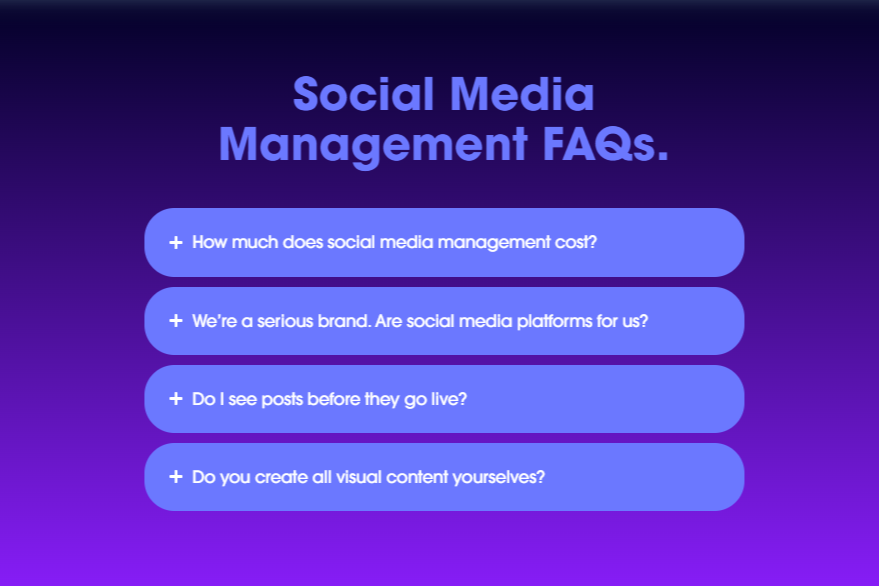Backlinks. Page speed. Domain authority. Google Reviews. Your ‘keyword optimisation score’. There are hundreds of signals – real and fake – that SEO agencies claim will affect your website’s ranking on Google.
Often, those claims will come with expensive advice. ‘We’ll get you a backlink from a DA 90+ site for $3,000.’ ‘You need a full site rebuild to rank. Your pages are too slow!’ ‘Yes, we need to spend a month updating all your meta-descriptions. Those definitely have a big impact on rankings.’
The truth? Most ranking factors won’t move the needle. You need to identify the big ones – the ‘power levers’ that deliver 90% of the impact – and focus on them instead.
What Signals Does Google Use to Rank Your Site?
At its core, SEO is about identifying the ranking factors used by search engines. It gets complicated because Google and other search engines keep their algorithms secret – and, even when an algorithm has been proven to work in a certain way, an update can quickly make that knowledge obsolete. (It doesn’t help that Google has a history of misleading SEOs, either.)
So, as SEOs, we formulate theories about what works by studying Google’s statements, patents, and incentives, and then prove or disprove them with tests.
Today, Google’s algorithms likely use more than 200 signals to rank websites. Most of those factors have minor impacts. Some, though, can make or break your site’s rankings. As a brand that wants more revenue, these ‘power levers’ of SEO should be your focus – and this article is about identifying the most impactful of them all. (Spoiler alert: it’s high-quality content.)
What Does Impactful SEO Look Like?
No business invests in SEO for its own sake. The purpose, always, is to drive more revenue. Here’s how that process works.
People use Google to find answers to queries – and, often, those queries relate to a part of the buyer’s journey funnel. Maybe they’re about understanding a problem (like ‘why do my gums bleed when I brush?’). Maybe the buyer is considering different types of solutions (like ‘floss vs water flosser’). Or maybe they’re trying to choose a solution provider (like ‘best dental floss’).
The job of an SEO is to answer searchers’ queries in a way that guides them towards your solution. Imagine you sell dental floss. No-one will buy floss unless they first understand the risks of plaque and gingivitis. They also won’t buy dental floss if they think water flossing is a better solution. And they won’t buy your floss unless they know about your brand and consider you a serious option.
So impactful SEO is about identifying commercially relevant queries and ranking as high as possible for them. Your site must also sway buyers in the right direction – even if you manage to rank with low-quality, AI-spun content, most buyers will just click away, which defeats the purpose of ranking at all.
Prerequisite: Understand Your Buyers
To identify commercially relevant queries, you need a good understanding of your buyers. Do they use Google to research the problems you solve? If they do, when do they use it? Throughout the buyer’s journey or just at certain stages?
You also need to work out what they search for and the kind of language they use. Understand their queries, and you can create content that addresses them. That’s the basis for keyword research. Keep 2 things in mind, though:
- Keyword research tools like Ahrefs and Semrush rely on a combination of Google Ads, Google Trends, GSC, and third-party data to identify keywords and search volumes. They only return the most popular search queries (the vast majority are hidden by Google for privacy reasons) and can only give you historical data. Use them as a directional guide, not a replacement for all buyer research.
- Google is very, very smart. Today’s algorithm doesn’t use keyword matching to return results (which is a bit like the CTRL + F function on your computer). Instead, it relies on semantic
search, which involves understanding the relationships between entities and interpreting the meanings behind words. So focus on identifying relevant topics – the exact, word-for-word phrasing is less important, regardless of what your last SEO agency told you.
Power Lever: Create Focused, High-Quality Content
Understanding your buyers is necessary but not sufficient for SEO. Once you know how they use Google and what they search for, act on that knowledge by creating focused, high-quality content. It’s the single biggest lever you can pull to help your website rank.
‘High-quality content’ has been very clearly defined by Google itself, both in its search documentation and in its Search Quality Evaluator Guidelines. It’s content that:
- answers the search query in question
- contains some original information
- covers the topic of the query comprehensively
- is technically competent (that is, combines quality writing with a good page experience)
- is factually accurate
- is written or informed by someone who has first-hand experience in the topic, is an expert in the topic, and/or is an authority on the topic (E-E-A-T).
Those requirements are backed up by various proven and probable ranking factors, including information gain, contentEffort, and consensus scores.
‘Focused content’ is the other side of the equation. If you had infinite marketing resources, you could cover every topic you identified with a high-quality page or article (hello, HubSpot!). But you probably don’t. So that leaves you with a choice – go broad across lots of different parent topics, or go deep across a few parent topics that are critical to your business.
Guess which one Google prefers? Depth over breadth is the way. The basic mechanism behind that preference is topical authority – how comprehensively your site covers a given parent topic – which is supported by signals like siteFocusScore and siteRadius.
How to Pull on the Content Lever
So now you know: high-quality, focused content is how you win in SEO. But it’s not a silver bullet. It takes a lot of skill and effort to execute an effective content strategy. You could experiment, play trial-and-error until you find what works for your website. That takes time, though – which is one resource most brands don’t have.
If you need organic search to deliver revenue quickly, there’s a better way: work with an experienced, full-service agency. Mono-service agencies – those that focus on just one channel, like SEO – can be great at what they do, but they’re also incredibly biased towards their channel. If you ask an SEO agency whether you should invest in SEO, they’ll rarely say no. A full-service agency works with all marketing channels, which means they can help you allocate your budget appropriately.
If your ideal customers do use Google in their buying journeys, your full-service agency can help build out a holistic content strategy that’s tied to business metrics like marketing ROI and net new revenue (not just leading metrics like keyword rankings that some SEO agencies focus on). At iOnline, for example, we’ve helped more than brands blaze a path to the first page of Google – even in the face of lean budgets and heavy competition.
Interested in finding out what that could look like for you? Schedule a consultation with one of our marketing strategists.












